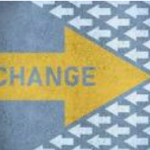“I’m failing”
I have heard that too many times in the past week. Tears, even from those who usually don’t cry, accompany the statement.
Each week I meet with grade level teams. In these collaborative team meetings we talk about standards, pedagogy, planning, and student needs. The meetings are task oriented and very focused. Since our work revolves around young people whom we care deeply about, emotions can arise at times, but it’s always tempered by a sense of purpose.
The meetings follow much of the same routine each week. The exception to that is when we have any sort of benchmark testing. When that occurs, the next collaborative team meeting is focused on the benchmark data.
My district recently administered benchmark testing, so I’m coming fresh off collaborative team meetings that revolved around data. Keep in mind, my district is fully remote. We have been most of the school year and the benchmark test was given remotely.
“I’m failing”
That’s what I heard in every single collaborative team meeting as we looked at data. Reminders that this is not a typical year and the data is not a reliable and valid representation of student learning fell on heavy hearts. It didn’t help ease the deep sense of blame our teachers are feeling. They are riddled with teacher guilt and it’s crushing them.
Teacher guilt is defined as the feeling of not doing enough for your students. A teacher may feel like they need to work longer hours and take more work home, no matter how much or hard they are already working.
Teacher guilt is nothing new. Most educators have felt teacher guilt at some point in their careers. For some, it never dissipates and eventually drives them out of the profession.
Part of the stress is the nature of the work. When your profession is the development of another human being, the work is never done. There is always more to teach, more guidance to give, because humans are never a finished product. It’s not a job that can be easily set aside when the workday is over. The work is literally endless.
Another part of the stress is the emotional nature of teaching. Teaching is deeply personal work. It’s part science, part art, and all heart. The responsibility teachers feel for their students is so strong it makes all decisions feel monumental. The pressure to always do more for them is tremendous and often unsustainable.
And while teacher guilt is nothing new, pandemic teacher guilt is guilt on steroids. This is because the expectations being placed on teachers are unmanageable and unrealistic. There is no way they can ever meet them and teachers feel like they are failing because they can’t.
My collaborative team meetings made me think about all of this more deeply. I wanted to know more. I sent a questionnaire to a few teacher groups and received many responses.
All but one teacher respondent said they have experienced teacher guilt and of those, all said their guilt during the pandemic is worse than it was before the pandemic.
While there were a lot of reasons for the increase in teacher guilt, a couple circumstances were repeated by most of the respondents:
- Teachers feel like no matter how hard they are working, it isn’t enough. They believe they aren’t meeting students’ needs or parents’ expectations. They view their efforts as unnoticed and unappreciated, so they try to work harder and longer. The excruciating part is the more they work, the more time they are taking from their own families and that leads to more guilt. It’s a vicious cycle. Teachers report being offered grace and understanding by parents, communities, and district leaders would lessen their feelings of guilt.
- The expectations for testing performance is causing exorbitant amounts of anxiety for teachers, compounding the guilt they already feel. They see the results of the district benchmark tests and know AzMerit is right around the corner. The fact that they will likely see lower scores than in years past is weighing heavily on them. Teachers say reducing the emphasis on standardized testing this year would help alleviate some of their guilt
Why does teacher guilt matter? It matters because Arizona needs to retain its educators and teacher guilt is a contributor to educators leaving the profession. Of the teachers who reported feeling teacher guilt, 71% said the guilt made them consider leaving the education profession. This is not okay.
How can we help alleviate teacher guilt? The first thing school leaders can do is ask and listen. My questionnaire asked teachers for their ideas to reduce their feelings of guilt. Many of them had good suggestions.
For the educators who may not know what they need, these are strategies that have worked for others:
- Try to establish a work/life balance. Being a teacher does not mean you have to be a martyr. It’s important to the longevity of your career to set guilt-free boundaries. National Board Certified Teacher Susan Collins has a great blog about finding this balance.
- Resist the urge to compare yourself to other educators. This is a futile exercise that only increases guilt and stress. There is a line between learning from an accomplished colleague and beating yourself up because you aren’t them. Don’t cross the line. Each and every teacher has diverse strengths and opportunities for growth. Embrace yours and travel your own path.
- Practice positive self-talk each day. Instead of criticizing yourself for not taking work home or leaving campus at a reasonable time, praise yourself for something done well that day. Maybe you timed a lesson well or gave a student effective feedback. Compliment yourself on a job well done.
- Finally, if you aren’t good at patting yourself on the back, find someone else to do it. We all need a cheerleader from time to time and one of your co-workers would be happy to toot your horn for you. I guarantee you have a colleague who knows you are doing all you can for students.
Most of us have dealt with teacher guilt at one time or another. This unprecedented year has made crawling out from under the pile of guilt more challenging than ever. As school leaders and community members, let’s help teachers climb out of the pile instead of adding more to it.










Comments 3
Thank you for this timely message. In listening to teachers, media, and communities, I sometimes get the subtle message that persons directly/indirectly for the current state of education. As if we caused the need for hybrid, online, and socially distanced learning. I have become especially bothered by the term “reopening schools”, as if we were ever closed. I feel like schools are more open and available than ever before. In addition to this, many teachers spent last summer preparing for virtual learning so we have had NO true breaks.
Anyway, thank you for this gentle hug.
Thank you so much for this blog. This speaks to me, but also SO many other educators. I feel as if I was actually saying these things to myself when I was reading. The part that stated, “Teachers feel like no matter how hard they are working, it isn’t enough” is scary and true at the same time. As hard as it is, we do have refrain from comparing this year to previous years. We are doing the best we can. Are scores going to be different? Yes. Is that across the board with pretty much everyone? Yes. As long as you are doing your best, you should feel proud of yourself. Once again though, easier said than done!
Ugh, so true. This has been an especially hard year for all of us. I have had to constantly remind myself that I am doing all I can.